Qatar University
Professional Writing
(16 sections total | 7 remote) ENGL 230
Students learn to compose common business documents and communicate effectively in professional contexts. The course is designed to familiarize students with rhetorical skills practiced in Western professional environments while preparing students for local Qatari cultural/institutional contexts and rhetorical situations. It is the most advanced English writing course offered at Qatar University. Assignments have included: job documents, a research report and Wikipedia section on Qatar National Vision 2030, usability evaluations, a guide for first-year students at Qatar University, and presentations.
Essay Writing II
(5 sections remote) ENGL 153
The course focuses on drafting, revising, and editing a sustained essay (rhetorical analysis) throughout the semester. This course primarily serves students in the English Literature and Linguistics program. For students who do not enroll in Professional Writing, this is the last writing course they complete at Qatar University before their senior capstone courses. Thus, the course emphasizes research, critical rhetorical analysis, and revision to prepare students for their capstone research.
Essay Writing I
(6 sections total | 2 remote) ENGL 150
Students learn foundational elements of academic writing by composing paragraphs and multiple essays (narrative, rhetorical analysis, and reflective). The course is designed to familiarize students with process-based writing and foundational structures of essays, and serves students from all majors that require English writing courses. Arabic is the primary language of instruction at Qatar University. As such, students enter Essay Writing I with a wide range of literacies and experiences. For some students, writing a complete paragraph in English is a new and challenging experience, while others are already well versed in composing essays of 1,000 words or more. Thus, the course requires careful scaffolding of assignments and highly individualized feedback alongside consistent rubrics that reflect the range of writing skills students bring to the course.
Purdue University
Technical Writing
10 sections ENGL 421
Students in this class learn to rhetorically analyze and design effective technical documents, and are introduced to principles of participatory technical communication research and design. Students design job documents (resume, cover letter, and elevator pitches), research a local makerspace and print a research poster, and write an instructional guide. In a summer section, students also designed technical description posters and usability reports.
Student Samples:
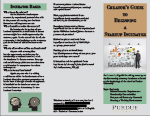
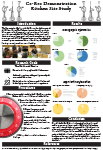


Business Writing
2 sections ENGL 420
This course serves students from a variety of majors, and teaches students to produce rhetorically effective professional and business documents. Students design job documents (resume, cover letter, and elevator pitches); research issues related to race, gender, and diversity within the workplace; and compose an infographic and recommendation report based on their research. In a condensed summer section of the course, students researched how automated writing technologies are impacting business writing, and then designed a summary memo and presentation about how the automation of writing in the workplace was impacting their field/industry.
First-Year Composition
9 sections ENGL 106
Digital Rhetorics
Students learn foundational rhetorical principles through rhetorically analyzing a digital artifact, 3D modeling and printing an object that makes an argument in response to a social issue, documenting their design via Instructables.com, and collaboratively producing a class wiki about digital rhetoric, writing, and 3D printing. From Spring 2014 to Fall 2015, I also collaborated with the BoilerMAKER Lab in the Purdue Polytechnic Institute to print students’ projects.
Selected Student Instructables:
3D Printed Phone Case
Bayer Monsanto Corn Cob
Deforestation Game
Executive Chess Piece
Student Debt
Additional Student Samples:
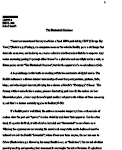
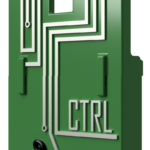
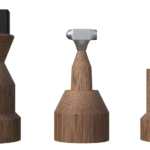

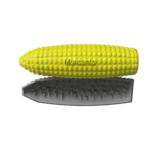
Global Engineering Learning Community
This course offered an opportunity to work with a community of international and domestic Engineering students who took classes together, and followed the same syllabus as my Digital Rhetorics sections. As part of the course, I collaborated with multiple instructors from Engineering and English to plan events outside of class, such as a tour of Subaru of Indiana Automotive, Inc., study sessions, and an assignment that used Purdue’s Ideas to Innovation (i2i) Learning Laboratory. Students from my course won two of three possible awards (“Most Potential for Impact” and “Best Overall Project”) for First-Year Composition at the Global Engineering Learning Community Showcase.
106E Linked Course with Design Thinking in Technology
I was invited to teach an experimental section of First-Year Composition in collaboration with the Purdue Polytechnic Institute. Students in the course took the same section of ENGL 106 First-Year Composition and TECH 120 Design Thinking in Technology. Throughout the semester, I coordinated assignment designs and class activities with Professor Paul Asunda, following the same syllabus as my Digital Rhetorics sections.
Writing about Writing
During my first two semesters teaching at Purdue, I taught First-Year Composition using the textbook Writing about Writing. In this course, students composed a literacy narrative, analyzed a discourse community of their choice, and designed a flyer that recruited people to join their chosen discourse community.
Michigan Technological University
Introduction to Web Design
1 section HU2650
As an Undergraduate Teaching Assistant for Professor Wendy K. Z. Anderson, I led three class discussions and facilitated weekly lab activities, while also maintaining the course Drupal website for approximately 20 students. I assisted in selecting an updated textbook for the course, revised assignments and created activities, responded to student blog posts, and held regular office hours.
